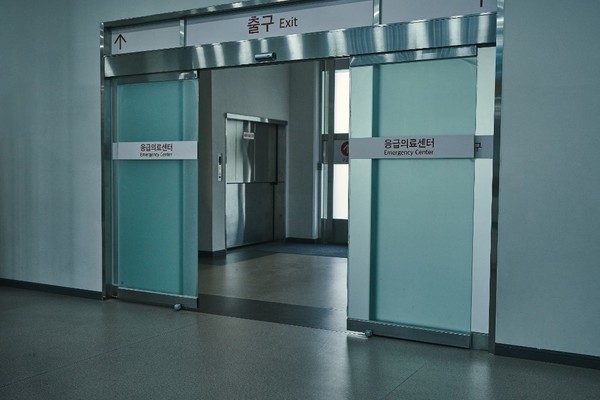There is a hole in Korea’s Covid-19 response system.
The government emphasizes the need to return to the general healthcare system but provides few backup measures or support, putting more strain on the medical field. Under the Covid-19 response system from which “even the government wants to escape,” private hospitals also leave it one after another, making it difficult to find beds for Covid-19 patients, according to medical workers on Monday.
The operation of hospitals and beds exclusive for Covid-19 patients will end by the end of this month. The government wants hospitals to maintain the Covid-19 beds even after the end of the exclusive hospital system. However, the government has offered few, if any, support or management plans.
Not surprisingly, most Covid-19 hospitals cut down on the hospitalization of Covid-19 patients. However, medical workers said that transfers among hospitals are not being made smoothly, and treating “special” patients, such as pediatric patients and those requiring emergency operations, is becoming increasingly difficult.

Many have already foreseen this situation. At a workshop last month, the Korean Emergency Medical Association (KEMA) called for the government to improve its Covid-19 response system and work out policies to cope with infectious diseases in ordinary times, expressing concerns over work overload in ERs.
A month has since passed since the end of the Covid-19 hospital operation is near at hand, but medical workers in the field say, “Nothing is prepared.” Some hospitals have already begun to clear up Covid-19 beds regardless of the government’s policy change.
“Starting mid-December, we will know which hospitals give up the operation of Covid-19 beds,” said an official at one of the Covid-19 hospitals in the greater Seoul area in a telephone interview with Korea Medical Review on Friday.
The Seoul Metropolitan Government plans to decide on the system’s continued operation every month. The quarantine headquarters also ask them to maintain beds for the time being, and few hospitals will likely do so. However, the official said most of them will keep only part of the beds and plan to reduce them after watching the trend.
"The government’s plan changes almost daily, and no one can say for sure. As the abrupt policy changes have continued for months, some hospitals said they would drop out of the system even if the government continues to support the hospitals. They get out of the system exhausted,” the official added.
Predicting that the shutdown of Covid-19 hospitals would create a situation where many patients would wander around as they cannot find a place to be hospitalized, the official said that would result in a surge of patients to ERs, paralyzing the emergency care system. ‘There are already such signs.”
An emergency medicine professor at another Seoul hospital said, “We can’t accept transferred patients if we want to. After the government lifted the mandatory Covid-19 test, ERs overflowed with influenza patients, Covid-19 patients, and others suffering from high fever. So if we have to receive patients from other hospitals, we cannot cope with them. It may sound like an excuse, but it’s true.”
Another professor said, “We have called for countermeasures for over three months. There are no answers or solutions. Even so, the government does not want to take responsibility. It seems as if the government seeks to take its hands off the system as early as possible. Eventually, hospitals are left to deal with all the consequences. If things are like this, which hospitals will volunteer next year or if other infectious diseases break out?”
Policy confusion leads to chaos in the medical field
“We have negative pressure rooms and quarantine facilities, but we cannot perfectly block the infection risk. Medical workers treat Covid-19 patients with the risk of contagion,” said Choi Seok-jae, a director at Hwahong Hospital who also served as the PR executive at KEMA. “Terminating the Covid-19 hospital system without proper support or management system can be regarded as the government’s intention to push ahead with a response system that entirely depends on the goodwill of hospitals and doctors.”
Choi pointed out that the government’s support remains at a fourth grade while demanding a second-grade response from hospitals, adding that such policy confusion leads to chaos in medical fields.
“If we accept patients as demanded by the quarantine authorities and fail to prevent infections within hospitals, our financial loss and responsibility will go beyond our control,” Choi said. “That, in turn, makes inter-hospital transfers of patients all the more difficult.”
He added that only when the government presents clear criteria and offers corresponding measures will the nation overcome the Covid-19 situation this winter.

